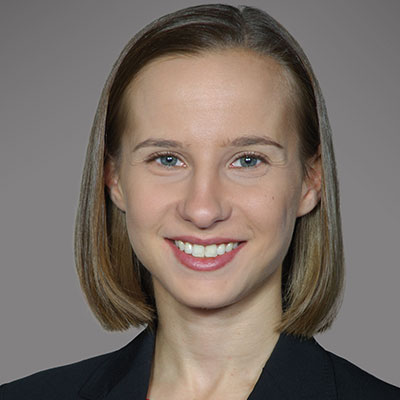From Pro Se Longshot to Pro Bono Victor: Kirkland Gets Habeas Win in Illinois Murder Case to Stand Up on Appeal
Kirkland partners Mark Schneider and Anne Salomon spoke with The Am Law Litigation Daily regarding the U.S. Court of Appeals for the Seventh Circuit's decision to uphold a ruling tossing the 2000 murder conviction of their pro bono client Julius Evans.
Julius Evans doesn’t give up easily.
In 2000, a Chicago jury convicted Evans of first-degree murder in the 1996 drive-by shooting death of Moatice Williams. Although the one witness who identified Evans as the shooter had recanted on the stand at trial, Evans faced a sentence of natural life in prison. By 2014, he had exhausted his appellate options in the Illinois state courts, making his only hope was a long-shot petition to federal court.
But Evans, who has always maintained that he’s innocent, didn’t lose hope. Last week, he and his pro bono lawyers at Kirkland & Ellis got a remarkable ruling from the U.S. Court of Appeals for the Seventh Circuit, upholding a lower court decision tossing his conviction.
“I think the result here reflects the very real impact that an investment by a team in a case like this can have,” said Mark Schneider, the former federal prosecutor and Kirkland partner who leads the team representing Evans. Schneider called representing indigent defendants like his client “the heartland” of true pro bono.
But Schneider also was quick to point out that last week’s result was rooted in Evans’ own work in the case. Evans filed his initial petition for habeas corpus pro se in 2014 in the Northern District of Illinois.
State prosecutors, Evans argued, had played on juror fears by referring to him as a “gang banger” in closing arguments. He also argued that the lead prosecutor improperly during closing arguments raised the possibility that the lone eye-witness to the shooting had recanted his identification of Evans as the shooter because he had been intimidated by an investigator hired by a codefendant of Evans. That contention was not supported by the evidence at trial, Evans argued, where the witness repeatedly denied being intimidated.
The argument by Evans convinced U.S. District Judge Rebecca R. Pallmeyer that he might have a viable habeas claim. She appointed Schneider to represent him in a July 2016 order. Armed with the judge’s finding that the prosecutor’s argument was improper, Schneider and Kirkland partner Anne Salomon, who was an associate when she started working the case, had to show that it amounted to a violation of their client’s constitutional right to a fair trial.
“I think just reading through the whole trial record and seeing how little there was and still seeing it result in a conviction was really remarkable,” Salomon said. “There’s really a dearth of evidence.”
Homicide detectives interviewed the witness at the center of the prosecution’s case, Andrew Jeffers, on the day of the shooting. He told them then that he had not seen who shot the victim. Nearly a year later, when Jeffers was in prison himself, he first identified Evans in a photo array. That array, which the state failed to preserve, showed six photos, including three people the state considered suspects in the case. In other words, Jeffers had a fifty-fifty chance of picking one of the state’s preferred suspects. Two months later, Jeffers, still serving time at a state boot camp, gave a witness statement saying he saw Evans shoot Williams out the front passenger window of an Oldsmobile. That statement, likewise, wasn’t preserved. Jeffers recanted all of that at trial and denied multiple times on the stand that he had been intimidated by an investigator for Evans’s codefendant.
Pallmeyer in a 2019 decision granted the amended habeas petition the Kirkland lawyers filed on behalf of Evans writing that his murder conviction ”rested on out-of-court statements of a single witness, first given eleven months after the shooting, and all recanted at trial.”
“In rebuttal closing, the prosecutor explained the recantation as a product of intimidation. No evidence supported that statement, however, and the state court’s determination to the contrary was not reasonable,” the judge wrote.
Pallmeyer concluded that the prosecutor’s improper statements “so infected the trial with unfairness as to make the resulting conviction a denial of due process,” quoting from the U.S. Supreme Court’s 1985 Darden v. Wainwright decision, the leading case concerning when comments in closing arguments rise to the level of reversible error.
Last week, more than two decades after Evans was convicted and nearly five years since Kirkland signed onto the case, a divided Seventh Circuit panel upheld Pallmeyer’s decision.
Writing for the majority, Circuit Judge Amy St. Eve agreed that the state’s closing argument about witness intimidation was not backed up by the evidence. She called particular attention to when it occurred at trial.
“The timing of the statements is particularly concerning, because the prosecution made the improper remarks during rebuttal closing statements—the very last time either party would address the jury,” St. Even wrote.
A representative of the Cook County State’s Attorney’s Office, which prosecuted the case at trial, said Tuesday that the office is “reviewing the court’s decision to determine next steps.”
Schneider, for his part, said he’s “cautiously optimistic” that the state won’t pursue any further appeals or continue litigating.
“It’s been a very long road,” Schneider said.


